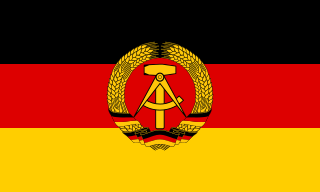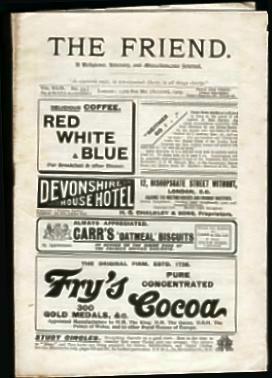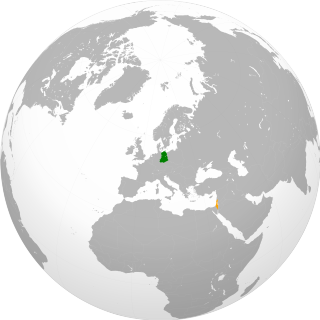
East Berlin was the de facto capital city of East Germany (GDR) from 1949 to 1990. Formally, it was the Soviet sector of Berlin, established in 1945. The American, British, and French sectors were known as West Berlin. From 13 August 1961 until 9 November 1989, East Berlin was separated from West Berlin by the Berlin Wall. The Western Allied powers did not recognize East Berlin as the GDR's capital, nor the GDR's authority to govern East Berlin. On 3 October 1990, the day Germany was officially reunified, East and West Berlin formally reunited as the city of Berlin.

East Germany, officially the German Democratic Republic, was a country in Central Europe that existed from its creation on 7 October 1949 until its dissolution on 3 October 1990. Until 1989, this country was commonly viewed as a communist state, it described itself as a socialist "workers' and peasants' state". Before the establishment, its territory was administered and occupied by Soviet forces with the autonomy of the native communists following the Berlin Declaration abolishing German sovereignty in World War II; when the Potsdam Agreement established the Soviet-occupied zone, bounded on the east by the Oder–Neisse line. GDR was dominated by the Socialist Unity Party of Germany (SED) from 1949 to 1989 before being liberalized under the impact of the Revolutions of 1989 against the communist states, helping East Germany be united with the West. Unlike West Germany, SED did not see its state as the successor one of the German Reich (1871-1945) and abolished the goal of unification in the constitution (1974). Under the SED rule, GDR was often judged as a Soviet satellite state, most scholars and academics described it as a totalitarian regime.

An audio tape recorder, also known as a tape deck, tape player or tape machine or simply a tape recorder, is a sound recording and reproduction device that records and plays back sounds usually using magnetic tape for storage. In its present-day form, it records a fluctuating signal by moving the tape across a tape head that polarizes the magnetic domains in the tape in proportion to the audio signal. Tape-recording devices include the reel-to-reel tape deck and the cassette deck, which uses a cassette for storage.

Hans Modrow was a German politician best known as the last communist premier of East Germany.

Christian Zionism is a belief among some Christians that the return of the Jews to the Holy Land and the establishment of the state of Israel in 1948 were in accordance with Bible prophecy. The term began to be used in the mid-20th century in place of Christian restorationism.

Manfred Gerlach was a German jurist and politician, and the longtime leader of the East German Liberal Democratic Party. He served as Chairman of the Council of State and was thus head of state of East Germany from 6 December 1989 to 5 April 1990.

The Friend is a weekly Quaker magazine published in London, UK. It is the only Quaker weekly in the world, and has been published continuously since 1843. It began as a monthly and in January 1892 became a weekly. It is one of the oldest continuously published publications in the world still in operation. Others which began publication before The Friend have had lengthy interruptions in publication and/or have closed down.

Margot Honecker was an East German politician who was an influential member of that country's Communist government until 1989. From 1963 until 1989, she was Minister of National Education of the GDR. She was married to Erich Honecker, the leader of East Germany's ruling Socialist Unity Party from 1971 to 1989 and concurrently from 1976 to 1989 the country's head of state.

Republikflucht was the colloquial term in the German Democratic Republic for illegal emigration to West Germany, West Berlin, and non-Warsaw Pact countries; the official term was Ungesetzlicher Grenzübertritt. Republikflucht applied to both the 3.5 million Germans who migrated legally from the Soviet occupation zone and East Germany before the Berlin Wall was built on 13 August 1961, and the thousands who migrated illegally across the Iron Curtain until 23 December 1989. It has been estimated that 30,000 people left the GDR per year between 1984 and 1988, and up to 300,000 per year before the construction of the Berlin Wall in 1961.

The Arab–Israeli conflict is an ongoing intercommunal phenomenon involving political tension, military conflicts, and other disputes between Arab countries and Israel, which escalated during the 20th century, but had mostly faded out by the early 21st century. The roots of the Arab–Israeli conflict have been attributed to the support by Arab League member countries for the Palestinians, a fellow League member, in the ongoing Israeli–Palestinian conflict; this in turn has been attributed to the simultaneous rise of Zionism and Arab nationalism towards the end of the 19th century, though the two national movements had not clashed until the 1920s.
Stephen Hubert Peet was an English filmmaker, best known as a pioneer of illustrated oral history and his BBC television series Yesterday's Witness (1969–1981).
The administrative divisions of the German Democratic Republic were constituted in two different forms during the country's history. The GDR first retained the traditional German division into federated states called Länder, but in 1952 they were replaced with districts called Bezirke. Immediately before German reunification in 1990, the Länder were restored, but they were not effectively reconstituted until after reunification had completed.

After the end of World War II Germany was separated into nation-states. Each nation-state was governed by a different country because officials could not agree on peace terms. The Soviet Union had claimed the eastern portion of the country. In 1947, the "German People's Congress for Unity and Just Peace" met in Berlin. The Congress was to take the demands of all the occupied zones, and create a peace treaty which would enact a centralized German government. In order to have their nation-state properly represented, the Soviets created the German Democratic Republic in 1949 when they officially approved their constitution in May.

The State of Israel and the German Democratic Republic never had official diplomatic relations throughout the latter's nearly forty years of existence. Even after the fall of the Berlin Wall no ambassadors were exchanged. The official policy of East Germany emphasized the necessity to differentiate between Jews and the Israeli state. This approach, stemming originally from the theories of Marx and Lenin on nationalism, class struggle, and the "irreconcilable struggle between socialism and imperialism" also served to counter accusations of antisemitism. In this context, a specific relationship or responsibility of the German people to the Jewish state was denied. Relations can be divided into 3 periods: positive neutrality (1948–1956), confrontation (1956–1985) and movement towards rapprochement (1986–1990).

Wolfgang Steinitz was a German linguist and folklorist. Through his rediscovery of hidden social commentary in traditional folk songs, he was an important pioneer of the German folk-revival in both East and West Germany. He researched the language and culture of the Ugric peoples of West Siberia, including the songs that form an important part of the tradition of this endangered ethnic group. Steinitz also left extensive work in other areas of linguistic studies.

Mandatory Palestine was a geopolitical entity established between 1920 and 1948 in the region of Palestine under the terms of the League of Nations Mandate for Palestine.

Friedrich Dickel was a German politician, who served as the interior minister of East Germany for nearly twenty-six years.
Hermann Weber was a German historian and political scientist. He has been described as "the man who knew everything about the German Democratic Republic".
William Borm was a German politician, of the Free Democratic Party (FDP). He was a member of the Bundestag from 1965 to 1972, and a member of the FDP National Executive Committee from 1960 to 1982. Several years after his death, it was revealed that since the late 1950s he had been an agent of the Stasi, the State Security Service of the German Democratic Republic.

Germany–Palestine are relations between the Federal Republic of Germany and the State of Palestine. Germany does not recognize Palestine diplomatically. However, Germany has a Representation Office in Ramallah, while there is also a Palestinian Mission in Berlin. There are numerous contacts between both societies, and Germany provides economic support to the Palestinian Territories through development partnerships. Germany is diplomatically committed to a two-state solution and has acted as a mediator in the Arab–Israeli conflict in the past.















